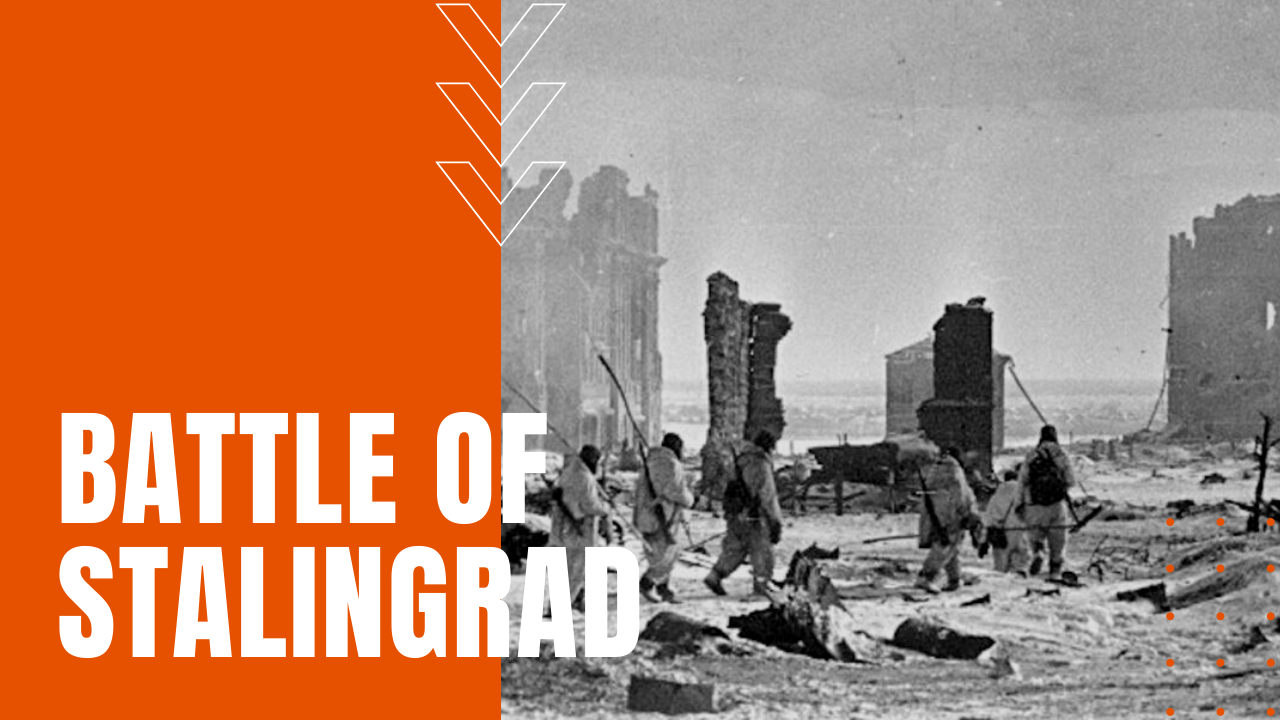Battle of Stalingrad

Considered the industrial heartland of Russia, Adolf Hitler ordered his Wehrmacht to attack and occupy Stalingrad, not just to slow the production of Russian war materiel, but also for propaganda purposes, since the city was named after Russian dictator, Joseph Stalin.
After Hitler proclaimed that all the city’s male residents would be killed and the women deported, Stalin ordered all Russians in and around Stalingrad to take up arms in defense of the city. The Wehrmacht’s 6th Army began their assault on August 23rd, 1942, but was successfully repelled in skirmishes near the city at a cost to the Russians of nearly 200,000 casualties.
Russian Reinforcements and Winter Weather at Stalingrad
Over the next several days, the German Luftwaffe rendered the Volga River impassable for maritime traffic, and by September, the Luftwaffe gained air supremacy over Stalingrad, bombing the city into ruins by the fall of 1942. With less than 20,000 Russian troops in the city and more than 300,000 Nazi and Axis forces closing in, Russian generals called for a massive influx of reinforcements, which effectively encircled Germany’s positions in an offensive known as Operation Uranus.
Understanding that the Germans were unaccustomed to Russia’s harsh winter conditions—along with a daunting 1,200-mile re-supply line—the flanking Russians deprived German forces of war materiel and food. During Operation Little Saturn, the Russians decimated lines of mostly Italian fighters to the west of Stalingrad, yet Hitler refused to surrender even as his troops ran desperately low on food and ammunition.
Why Was the Battle of Stalingrad Important?
By February of 1943, Russian troops regained control over Stalingrad, taking more than 100,000 German POWs, who for the most part would later die from disease and starvation. Germany’s egregious losses at Stalingrad marked the first time that Hitler publicly acknowledged a German defeat in their attempts to dominate Europe, putting Nazis and Axis powers on the defensive for the first time in the war.
Many historians believe that the Battle of Stalingrad marked a crucial turning point in the momentum of World War Two, paving the way for an eventual victory by the Allies in May of 1945.
